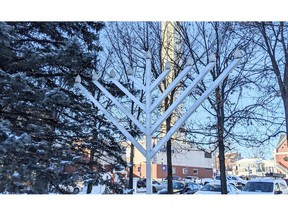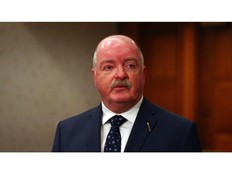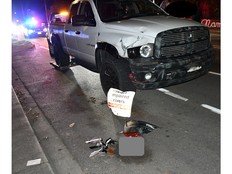Gary Waite: Historical context vital in Moncton controversy

Article content
I, like many of our fellow citizens, was deeply disturbed by the original decision of Moncton city council to stop a twenty-year tradition of lighting a large menorah outside Moncton city hall in celebration of Hanukkah. I am happy to see that the public pressure helped convince council to reverse it, but it remains important to provide some historical context relating to this controversy.
If the initial decision was made, as is asserted in the CBC article, due to the Supreme Court’s 2015 decision against “municipal councils opening their meetings with prayer,” the councillors need to think about this more carefully. It is one thing to have religion explicitly informing the actions of city council, as in-house prayers imply; it is another for council to allow local religious communities to mark their festivals at city hall in celebration of our multicultural society. If this decision was intended to follow the court’s ruling (eight years after the fact), then I would expect the council to now forbid the holiday tradition of lighting a Christmas tree or displaying angels. But we know that if it did so there would be a hue and cry from the Christian community about a “war on Christmas.”
As an historian I will remind all readers that hatred of the Jews as a people is ancient, but its worst iterations were developed by Christians, from the Middle Ages onward. This antipathy developed even though Christianity was originally a sect within Judaism, as Jesus and most of the disciples were Jews. Even the story of the birth of Jesus was set in a Jewish context.
Medieval and Early Modern myths about Jews have, unfortunately, persisted. These include the false charges that Jews had committed deicide by killing the Son of God, Jesus Christ (it was the Romans who did that); that they continue to seek the death of Christ in the person of Christian children (the ritual murder accusation); that their blood is by nature so corrupt that they cannot actually convert to Christianity (this from the Spanish Inquisition); that they poisoned wells during times of plague as part of a global plot against Christian society; that they dominate global finance; and so on. The stories Christians developed were often irrational and bizarre, including magical and diabolical elements, and they led to horrific violence.
In other words, Europe was a dangerous place for Jews, especially during Christian festivals like Easter and Christmas when city mayors had to warn the Jews of their community to stay inside or even locked them within ghettos for their own safety.
Such myths were given credence in the 19th and 20th centuries with the turn to “racial science” identifying Jews as belonging to a separate race (building on the older notion of “Jewish blood”). Christian Antisemitism merged with this newer biological depiction of Jews, resulting in the Nazi Holocaust. Even after that genocide, many of the irrational anti-Jewish myths continued to fester.
Around the world, antisemitism is once again on the rise. We must remember that during the brief time in the 1930s when European Jews could flee Nazi policies of forced labour and death, Canada refused to admit all but a small number of Jewish refugees, as told in the book by Irving Abella and Harold Troper, None is Too Many: Canada and the Jews of Europe, 1933-1948. Antisemitism was rife here too, and remains so in certain quarters.
The horrific conflict in Israel and Gaza has suddenly brought such hateful sentiment back into the foreground. It is therefore essential that we as Canadians do not conflate the actions of the current Israeli government with Jews here and abroad.
Instead, when expressing opposition to the actions of the Israeli government, we must not use language or act in ways that could be interpreted as aligned with this long history of Antisemitism.
In this current, dangerous climate, the act of ending a 20-year tradition of lighting a menorah could be easily interpreted as implicit support for the antisemitism that for so long has led to violence against the Jewish community. And we expect our elected officials to show respect for, and support of, the cultural diversity of our society.
I am thankful that at its meeting of December 4 Moncton city council realized their error and restored the ceremony of the lighting of the menorah. The incident, however, provides another example of why we need to be mindful of this long, sad history of antisemitism, and ever vigilant.
Gary Waite, PhD, FRSC, Professor Emeritus, Historical Studies, UNB Fredericton












Postmedia is committed to maintaining a lively but civil forum for discussion. Please keep comments relevant and respectful. Comments may take up to an hour to appear on the site. You will receive an email if there is a reply to your comment, an update to a thread you follow or if a user you follow comments. Visit our Community Guidelines for more information.